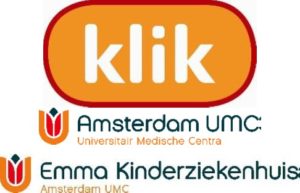The aim of the KLIK PROM portal is to implement PROMs relevant for patients in daily clinical practice and unique in the way that it is not only a PROM portal or app like other initiatives. It is a PROM portal with a KLIK team of PROM experts and researchers who provide advice, implementation support and help desk functionalities to a multidisciplinary team. The KLIK team evaluate yearly with the team to establish a learning cycle for the multidisciplinary team and the implementation of PROMs.
Value Based Health Care is based Porter’s equation; Patient Value is patient relevant medical outcome divided by cost. These medical outcomes could consist of clinical outcomes, Patient Experience and Patient Reported Outcomes measures by Patient Reported Outcome Measures (PROMs).
Collecting data directly from the patient is challenging. In addition, to add patient value to the individual patient it is important to discuss these information with the patient and to make decisions based on the results. For clinicians this is often out their comfort zone and therefore not implemented in daily clinical care.
PROMs are standardized, validated questionnaires that are completed by patients, such as a person’s perspective on their health, well-being or symptoms. PROMs can be used for several purposes; at group level to study differences between disease populations, to describe the effects of treatment in clinical trials, to assess quality of care or on an individual level to promote patient-centered care, guide clinical decision-making and to facilitate communication (Greenhalgh, 2009). There is widespread evidence for the effects of PROM applications on an individual level regarding an increase in Health-related Quality of Life (HRQOL) scores, satisfaction with care and communication about PROs in research settings.
The KLIK PROM portal is an example of an evidence-based PROM portal for patients (Haverman et al., 2014). Patients complete PROMs online, prior to their visit. Answers are transformed into an electronic PROfile (ePROfile) and displayed on a well-designed dashboard. Clinicians discuss this ePROfile with patients, to monitor well-being over time, identify problems, and act on it by providing tailored advice and interventions. The effects of using the KLIK PROM portal have been demonstrated in two studies (Engelen et al., 2012; Haverman et al., 2013), by showing an increased and more detailed discussion about patient outcomes during the consultation, less undetected problems, and a higher clinician-reported satisfaction with provided care, without lengthening the consultation duration.
Despite the availability of several PROM interventions across the world, the actual implementation of PROM interventions in clinical practice remains limited (Hasson, 2010; Jensen et al., 2014; Leahy, Feudtner, & Basch, 2017; Sung, 2015). There is a critical gap between what we know can optimize patient health and outcomes and what gets implemented in everyday practice. If PROM interventions are not successfully implemented in clinical practice, then intended effects are not reached, which limits the impact on patients’ health outcomes (E. Proctor et al., 2011; E. K. Proctor et al., 2009).
The implementation of KLIK, as part of standard care, started in 2011 (Engelen et al., 2012; Haverman et al., 2013). Currently, KLIK is part of standard care in >60 different patient groups (e.g. diabetes, nephrology) in >30 centers in the Netherlands and 3 centers in the United Kingdom. More than 1,000 clinicians (e.g. physicians, nurses, psychologists) have been trained in the use of KLIK. KLIK is implemented in various settings, including hospital outpatient clinics, rehabilitation centers and recently in dentistry.
The KLIK PROM expert team combines expertise on PROMs, the system and implementation to support teams using PROMs for patient-centered care and VBHC.

